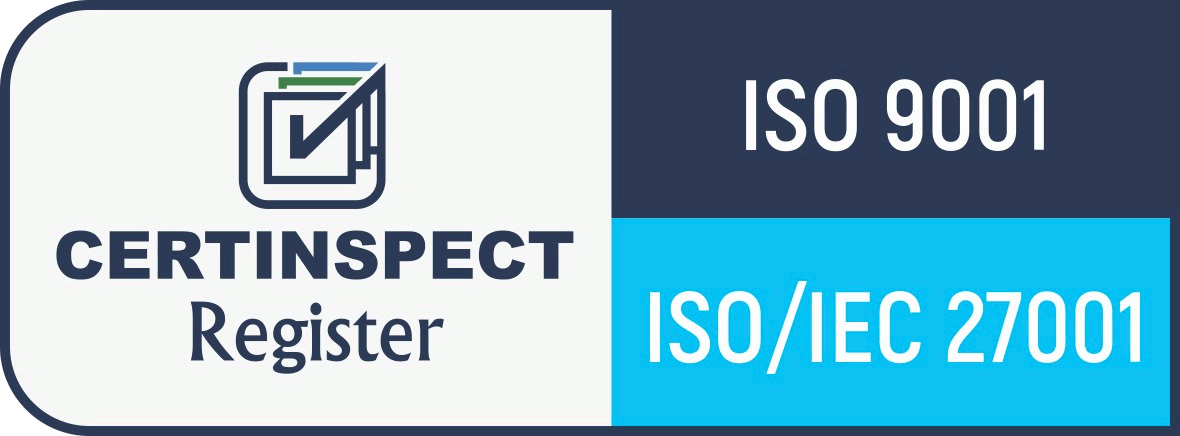To meet its objectives of strong organic growth, Pentalog has committed since 2007 to a Quality initiative aimed at improving its internal efficiency and at fully satisfying its customers. This materialized in 2008 with its ISO 9001 certification.
Pentalog then engaged into a Security initiative aimed at strengthening the confidence of its customers, staff, and partners, ensuring the compliance of its actions with the laws and limiting the risks of financial loss, improving continuously its security performance. This materialized in 2021 with its ISO 27001 certification.
Pentalog Group Companies are ISO 9001:2015 certified as follows
Design, production and maintenance of digital products, Technical assistance, DevOps, Cybersecurity, Infrastructure management, Cloud computing, IT Business Process Outsourcing, Consultancy, Research, Digital marketing (website optimization techniques), Skills assessment for employees and contractors.
- Pentalog France: La Chapelle Saint-Mesmin, Paris, Lyon
- Pentalog Romania: Brasov, Bucharest, Cluj, Iasi, Timisoara, Craiova
- Pentalog CHI: Chisinau
- Pentalog Vietnam: Hanoi
- Pentalog Deutschland: Frankfurt
- Pentalog Mexico: Guadalajara
- Pentalog Americas: New York
- Pentalog UK: London
Research
- Pentalog France: La Chapelle Saint-Mesmin, Paris, Lyon
- Pentalog Romania: Brasov, Bucharest, Cluj, Iasi, Timisoara, Craiova
- Pentalog Vietnam: Hanoi
Recruitment, Skills assessment
- Pentalog HR: La Chapelle Saint-Mesmin, Paris
- Pentalog HR Romania: Brasov, Bucharest, Cluj, Iasi
Pentalog Group Companies are ISO/IEC 27001:2017 certified as follows
IT security of the internal processes (human resources, go to market, internal infrastructures and software applications administration)
- Pentalog France: La Chapelle Saint-Mesmin, Paris, Lyon
- Pentalog Romania: Brasov, Bucharest, Cluj, Iasi, Timisoara, Craiova
- Pentalog CHI: Chisinau
- Pentalog Vietnam: Hanoi
- Pentalog Deutschland: Frankfurt
- Pentalog Mexico: Guadalajara
- Pentalog Americas: New York
- Pentalog HR: La Chapelle Saint-Mesmin, Paris
- Pentalog HR: Brasov, Bucharest, Cluj, Iasi
- Pentalog UK: London
Our new family Globant now brings 28 business and tech studios to help us connect with x times more prospects, accelerating growth opportunities in the attractive market of digital services.
To keep profitability, accelerate growth and obtain the results that we are committed to, Quality and Security are more than ever at the higher level of our expectations.
Our Quality policy relies on 4 continuous improvement axes:
- Provide the framework for the company’s growth
- Always share common and systemized working practices
- Continuously improve our efficiency
- Continuously improve our clients’ satisfaction: the end quality of the products and services we deliver is part of their obvious and indisputable expectations.
Our Security policy relies on 3 majors challenges:
- Structure and increase Pentalog security level
- Search economies of scale by industrializing security processes and measures
- Generate more revenue through the security services.
Our Quality and Security policies and processes are not negotiable and must be respected by each Pentalog employee, contractor, and partner.
I expect that everyone respect our collective commitment and I will personally make sure that these objectives are met.
Written in Orléans, on September 11th , 2023
Frédéric LASNIER,
Globant Executive Vice-President for France,
Germany and other markets










